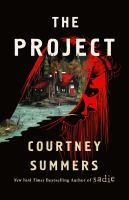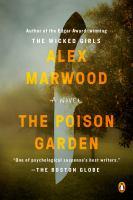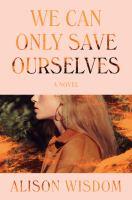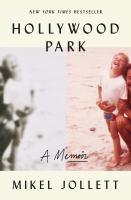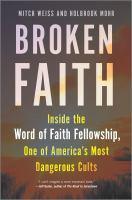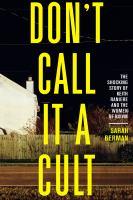Just to add to the anxiousness of 2020, academics and the media reminded us that groups such as QAnon, NXIVM and Happy Science were on the rise. Both terrifying and utterly fascinating, cults and sects have a tendency to capture the attention of just about everyone. Questions abound: Where do these people come from? Most interesting, perhaps, are the psychological components of cult life, such as: How do people get convinced to join a cult? What happens if someone tries to leave a cult? Find a list of titles below, both fiction and nonfiction, that may offer some insights on those who become cult members, as well as the people who manipulated them to do so.
Starting with fiction: Those Who Prey, Jennifer Moffett’s young adult debut, perfectly captures, beyond the nature of cults and the isolation of pre-cellphone eras, the desperation of being alone. Emily heads off to college far away from friends and an emotionally distant family, and struggles. Until she meets Josh, who is kind and interested in Emily’s life, and soon she is meeting other members of The Kingdom. By the time Emily gets to Italy on her 'mission,' she knows she’s in deep trouble. Each chapter is titled with a cult practice, such as “love-bombing” which is done early in the recruitment process, helping readers understand the process.
Another outstanding title in the young adult category is Agnes at the End of the World by Kelly Williams, a story of hope, fear, loss, and faith. Told from two points-of-view, readers follow Agnes and her sister Beth as they navigate their lives in Red Creek, a religious cult, while the world outside the gates faces a pandemic. Respect for religion and symbolism in one world collides with the sisters’ views on feminism and equality in another. Agnes knows that their younger brother cannot survive without insulin, making the difficult decision to try and leave.
The Project by Courtney Summers dives deep into the female psyche and explores the complex nature of growing up in a patriarchal society that puts young girls at risk in a variety of ways. Summers also does a great job of looking at the complex mental and emotional states of young people, which is why her books resonate with readers of all ages. Lo is an aspiring young journalist determined to save her sister from a cult called the Unity Project. As she gets closer to the leader, she begins to see how deeply members believe in his direction and how dangerous he is. Though this is classed as a young adult title, it reads older and has more mature content.
Published in the UK in 2019, author Alex Marwood’s The Poison Garden took a couple of years to cross the pond and readers of psychological thrillers should rejoice. And the setting is Wales - how often does that happen? Romy was a baby when her teenage mother, Alison, joined the Ark. She’s known nothing else but their strange, isolated lifestyle that consisted of preparing for the Apocalypse and living off the land while following the teachings of their Father, Lucien. She’s been taught to fear the outside world and those who inhabit it, known to her as the Dead. As the only adult survivor of the Ark’s mass suicide, she must now move into the world of the Dead, with only her estranged aunt to guide her.
Alison Wisdom’s impressive debut novel, We Can Only Save Ourselves, raises uncomfortable questions about parental expectations, social conformity, suburbia, and more. Her book also takes a not-so-common approach to storytelling with the appearance of a chorus, along with traditional third-person narrative. At the same time golden girl Alice discovers she will not be the homecoming queen, a mysterious and alluring man shows up, and just as quickly, Alice is gone. Soon enough, she is part of a cult-like household of four other young women devoted to Wesley, living off the grid in the desert.
Thriller readers are very familiar with Heather Graham and her newest stand-alone novel, Danger in Numbers, will not disappoint. It opens with a ritualistic murder on the side of a remote road, getting the attention of the Florida state police. Special Agent Amy Larson has never seen worse and there are indications that this killing could be just the beginning. The crime draws the attention of the FBI in the form of Special Agent Hunter Forrest, a man with insider knowledge of how violent cults operate, and a man who might never be able to escape his own past.
Now for some nonfiction, beginning with Killer Cults: Stories of Charisma, Deceit, and Death by Stephen Singular, known in Denver for his book Talked to Death, covering the assassination of a Denver Jewish talk show host, Alan Berg, by a group of neo-Nazis known as The Order. Talked to Death in turn inspired the Oliver Stone film Talk Radio. His latest title examines nineteen national and international cults and their leaders, some of them well-known and others more obscure, from Jim Jones to Magdalena Solis. The book uncovers common traits in those who create cults and those who join them -- showing how in these particular cases the mixture ended in tragedy. A fascinating exploration of the human tendency to give up one's power for absolute answers, this book takes readers inside the dangerous dynamics that often result in death.
True crime junkies, this one is for you - Cults Uncovered: True Stories of Mind Control and Murder by Emily G. Thompson. While this book does hit on some of the biggest and most notorious ones, it also looks into cults that many of us have never even heard about. The mind games, brainwashing, manipulation, and murder are all very disturbing yet unfortunately real. Though Thompson doesn’t do a deep dive on each and every cult, readers will get a sense of the same techniques used on innocent people.
Before he was a writer or a musician (The Airborne Toxic Event), Mikel Jollett, author of Hollywood Park, was a child who had escaped a cult. Until he was 4, he lived with his older brother, Tony, in a Northern California children’s camp run by Synanon, an addiction-recovery group that by the late ’70s had curdled into insularity and violence. Exploring issues of addiction, mental health, and much more, Jollett looks objectively at his childhood, how he was raised, and his relationship with his parents in this detailed account of his life. He depicts the lasting impact of childhood trauma, sparing no details and intimately sharing the abuse and neglect he experienced in his formative years.
Lauren Hough takes spectacular sharpshooter aim and hits the bullseye in Leaving Isn't the Hardest Thing, a collection of essays about several defining chapters of her life. Lauren is an Air Force veteran in her 40s, 6 feet tall, a lesbian, and a childhood survivor of an abusive cult called the Family. While famous for her viral essay about the decade she spent as a cable "guy" in the suburbs of Washington, D.C., Lauren Hough has lived many lives, and now Hough has created a work of essays that cements her place in the queer canon.
There’s always the question of where the line between religions and cults exist. Is there a certain point where devotion crosses some unseen line and curdles into something awful? That’s the process examined in Mitch Weiss and Holbrook Mohr’s new book. Broken Faith: Inside the Word of Faith Fellowship, One of America’s Most Dangerous Cults explores how something that began as a small religious community gradually became a politically influential, overly controlling entity — and how its members coped with the growing limitations on their everyday lives.
Founded in 1998 by Keith Raniere - who in late 2020 was sentenced to life in prison for his actions with NXIVM - the group first gained widespread critical attention in 2017 when allegations of branding and blackmail were revealed in a New York Times article about Sarah Edmondson, an actor and former member. Don't Call It a Cult by Canadian journalist Sarah Berman takes advantage of her access to former NXIVM members to detail the organization’s crimes, which included the sexual abuse of teenagers, slavery, and the branding of members with the initials of its sadistic leader.
Cults and Extreme Belief is a streaming video documentary that profiles some of history's most notorious cults. Host Elizabeth Vargas reveals some of the belief systems different groups reinforce and reject and how these beliefs are articulated to recruit members. Former cult members and experts like Dr. Janja Lalich help explain the ways cult leaders employ indoctrination tactics and subsequently use reward and punishment systems in order to keep group members compliant.


